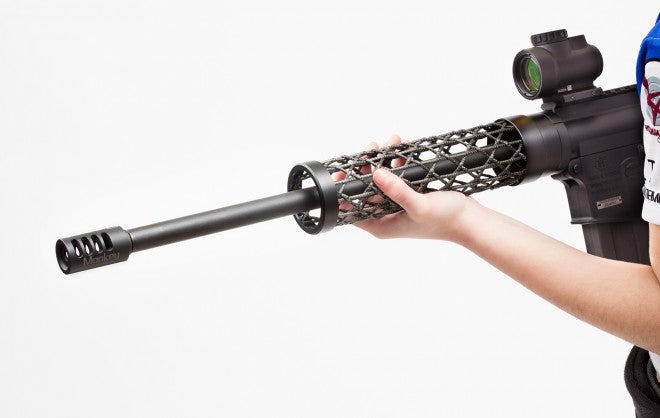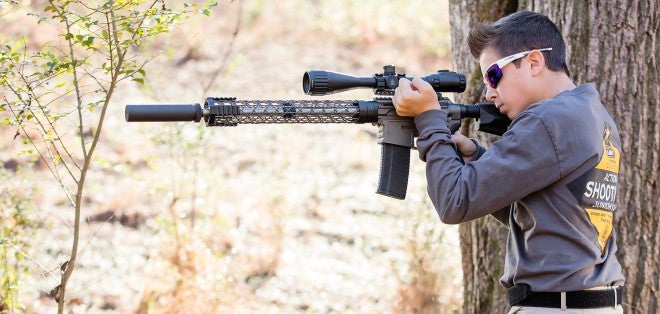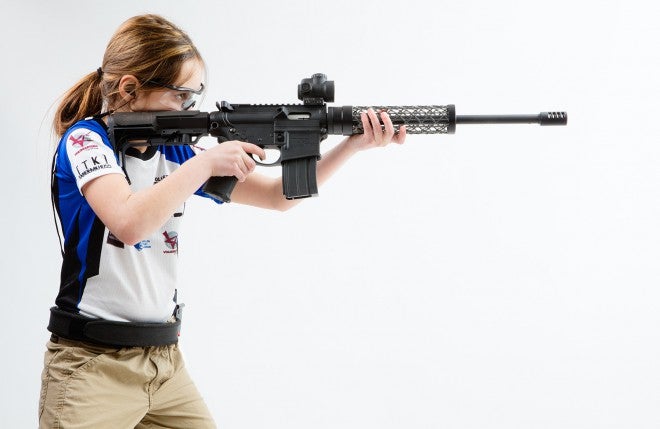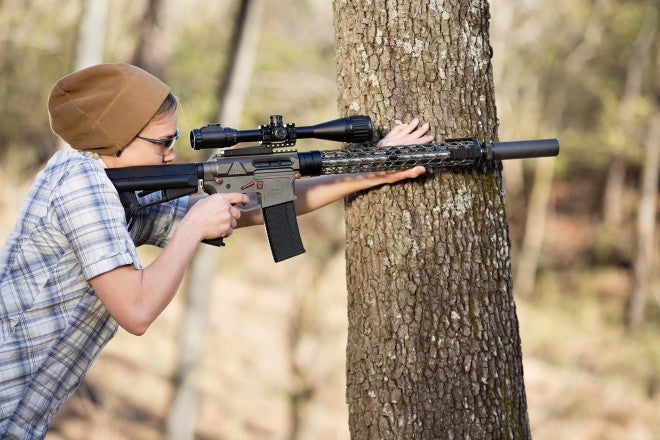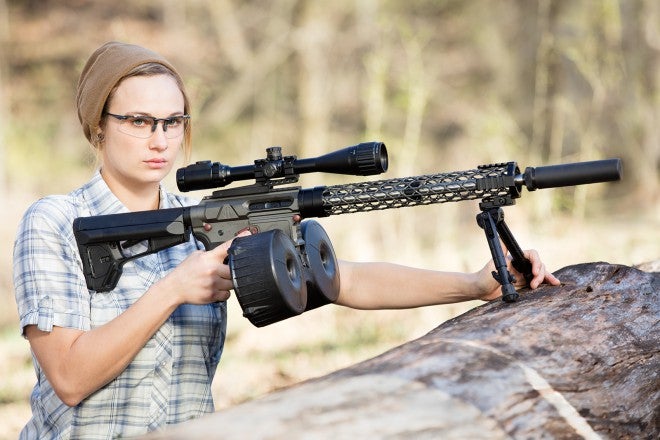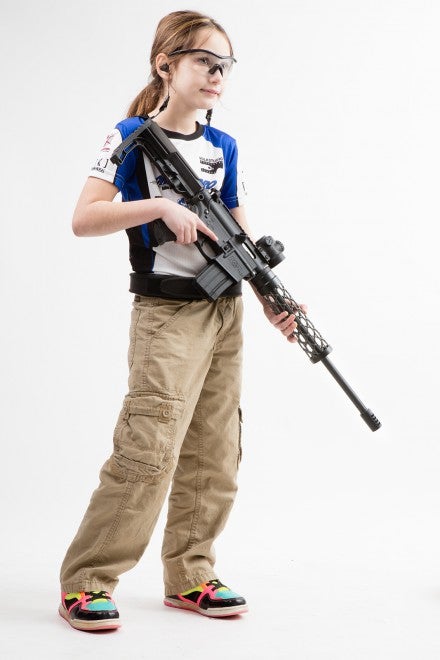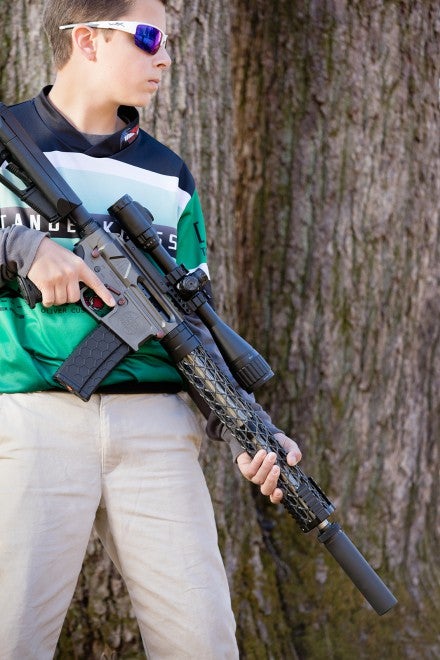Brigand Arms Carbon Fiber “Fishnet” Forends
Oleg Volk 02.18.16

Once we go from the military style clamshell forends to the more trendy designs, we run into several problems. Many are thick, heavy, and covered in abrasive rails. Better examples are slimmer, lighter, and less abrasive but still made of thermally conductive aluminum. They heat up quickly and transfer the heat to the hands and to mounted accessories. The carbon fiber alternatives work pretty well, and quite a few varieties exist. Recently, I encountered the Brigand Arms design, and it quickly became my favorite solution.
Made from woven carbon fiber strands, their forend is extremely light and allows for effective barrel cooling. The short 9″ forend shown above weighs under 3 ounces, and the longest 15″ with every rail attached is still under 6 ounces.
On a full length rifle with a sound suppressor, even a lightly built teen shooter can hold the rifle up with strong hand while operating the charging handle with the support hand. (Custom rifle by Fighting Sheepdog of Knoxville, TN).
On a lighter .22 competition rifle, an 8 year old marksman can keep it aimed steadily far longer than she could have with the original, much heavier forend.
When supported as shown above, the rail doesn’t slide as a smooth carbon fiber tube would have, but it also doesn’t abrade the support hand as a metal forend would have upon recoil.
Used with a 150 round drum, it provides enough ventilation to extend the heat endurance of the barrel significantly. Since carbon fiber dampens vibration, it also improves accuracy relative to the more rigid forends.
While thin enough for even the smallest hands to grasp, Brigand Arms forends have thick enough mesh to keep fingertips away from the hot barrel. So far, the only down side I see is the absence of a mounting point for a vertical foregrip. On top, a full-length rail is available, so installing the forend upside down would solve that issue–possibly useful for very high volume of fire. In theory, a partial metal heat shield is also possible to reflect the radiated heat upward. My own interest in the top rail is to direct the hot air away from the sighting plane. For very heavy firing, I would wrap the barrel nut in an insulating material, as it will eventually warm up from the proximity to the chamber.
Installation requires no tools and takes only a few seconds. The forend threads onto the supplied barrel nut, and a set collar threads on to keep it in place. These forends aren’t cheap, but they make the handling of rifles tremendously more pleasant and improve actual performance as well. People who prefer front-heavy gun for varminting can simply go to even heavier barrel profiles to offset the forend weight reduction, gaining even greater accuracy without changing the weight of the gun overall.
